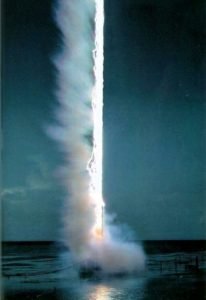How to prepare for a lightning strike on a yacht.
One of the dangers when you are sailing is being caught at sea when it is lightning. Thankfully it is a pretty rare thing but it does happen, after all you are in an open space with a lightning conductor above you, namely the mast. A lightning strike on a yacht is a scary thing, however, as with all things on yachts good preparation is the key to making sure that if it happens you have taken the necessary steps to limit the damage to both you and your yacht before. Google has many posts on how to prepare for this but the best tips we know of comes from our friends at http://www.sail-worldcruising.com/84108

1• Don’t wait until it’s too late: Get off the water early: Getting to safe harbor is the safest bet. If you’re in a powerboat and can’t get in, you may be able to get around the storm.
2• Inside is best: If you can’t get off the water in time, the best place to be on a boat is inside any cabin, but avoid being near mast or chainplates, or large metal appliances like refrigerators.
3• Disconnect the power and antenna leads to your electronics: Many strikes just damage electronics so disconnecting them goes a long way in preventing equipment damage.
4• Keep away from metal: If there is no ‘down below’ and you’re stuck out on deck, stay away from metal railings, wheels, the mast and mast stays, or any other metal fittings. There is record of a boater being killed in North Carolina when lightning jumped from his sailboat’s backstay to his head and then the metal steering wheel he was holding.
5• Don’t be a lightning rod: If you’re on an open boat, stay low and in the center. Depending on the severity of your situation, it’s also a good idea to remove jewelry. There was a case reported a few years ago in which lightning struck a man who was standing up wearing a large medallion.
6• Stay out of the water: Don’t fish during a thunderstorm – or dangle toes overboard.
7• Lower antenna: Unless they serve as part of a lightning protection system, lower any antennas.
8• Stay silent: Don’t use the VHF unless absolutely necessary.
9• Lightning grounding protection systems: Grounding systems, which provide a path for the lightning to enter and safely exit the boat, must be free of corrosion if they are going to provide any protection

